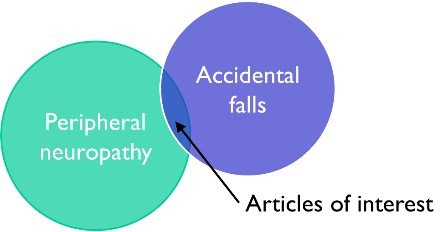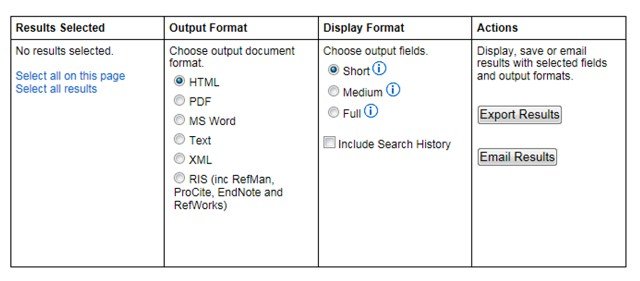Introduction
Literature searching has many uses. You might use it if to find evidence related to a particular clinical case or presentation that you're due to give. Moreover, you might use it if you're writing a review of evidence on a particular topic. Particularly in the case of systematic review, where the process has to be reproducible, then a clear and well-conducted literature search is very important.
You probably already have some training in literature searching; it's a commonly taught skill at undergraduate level. So this guide may be a refresher for you. After you've read this, your current institution's library may be able to provide assistance if you'd like more training with carrying out a literature search.
Defining a search question
Before starting, take some time to consider what your search question is. Searching for a single topic can yield a very large number of results, so it is helpful to consider if the information you want is actually the overlap between two different subjects. For example, searching for articles about the relationship between having peripheral neuropathy and then having falls as a consequence will produce a much smaller number than looking for either on their own:


